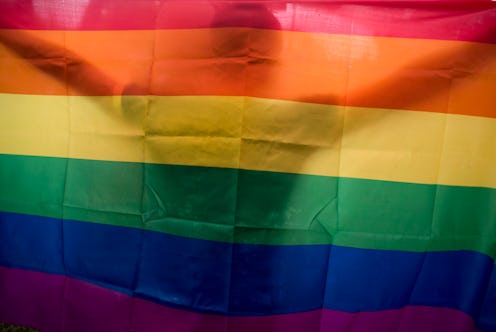
In a landmark victory for LGBTQ rights, the High Court in Botswana legalized consensual gay sex. Specifically, the Botswana High Court did away with a colonial-era law that once penalized same-sex relationships for Botswana citizens, the Washington Post reported on Tuesday. The news comes shortly after Kenya upheld its law that bans same-sex relations in May.
By officially declaring the colonial-era law as destructive, biased, and against the country's constitution as well as the people's interest, the High Court of Botswana unanimously ruled on Tuesday to overturn it. According to CNN, Justice Michael Leburu declared the ruling as beneficial to Botswana as a country. "A democratic society is one that embraces tolerance, diversity, and open-mindedness," Lebruru stated, per CNN. "Societal inclusion is central to ending poverty and fostering shared prosperity."
Previously, the Botswana Penal Code contained sections 164 and 167, which condemned homosexuality as "against the order of nature." As such, same-sex relations could be punished by sentencing an individual to seven years in prison, CNN noted. Time and again, LGBTQ activists had decried the colonial-era law as detrimental to the health and safety of LGBTQ people in the country.
One of those advocates, Anna Mmolai-Chalmers of the LGBTQ rights group Legabibo in Botswana, told CNN how decriminalizing homosexuality could help LGBTQ individuals access better health care. "This judgement can make a massive change for our lives," Mmolai-Chalmers told CNN. "This is what excites me the most. The judgement means so much. ... The court has upheld our dignity, our privacy, and our liberty. ... It means freedom."
The victory comes several months after a 21-year-old gay student named Letsweletse Motshidiemang argued in court in March that as time went on, homosexuality had gradually been accepted as a way of life. The student said that Botswana should open itself to the people of the LGBTQ community, according to The Tswana Times that month.
"Being a homosexual is not something new in my life, it is something, that I have learnt to live with growing up since the age of 10," the student argued in court. While speaking in court, Motshidiemang also said that he was in a relationship with a man and that he had "no doubt" that he would be a gay man for the rest of his life. He said that he felt accepted and free at the University of Botswana where people, he claimed, did not judge him.
It was the aforementioned sections in the Botswana Penal Code that Motshidiemang said prohibited him from expressing his love freely, he said in court in March.
"By virtue of one or more of these provisions of the law," he said, "I am prohibited from expressing the greatest emotion of love through the act of enjoying sexual intercourse with another consenting adult male that I am sexually attracted to and who is also sexually attracted to me, as consenting adults."
Now, it looks like Motshidiemang — and other LGBTQ individuals in Botswana — were finally heard on Tuesday. In their official ruling, the judges in the Botswana High Court gave a powerful statement on legalizing LGBTQ relations, the Associated Press reported.
"Any criminalization of love," the judges wrote, "or finding fulfillment in love dilutes compassion and tolerance."